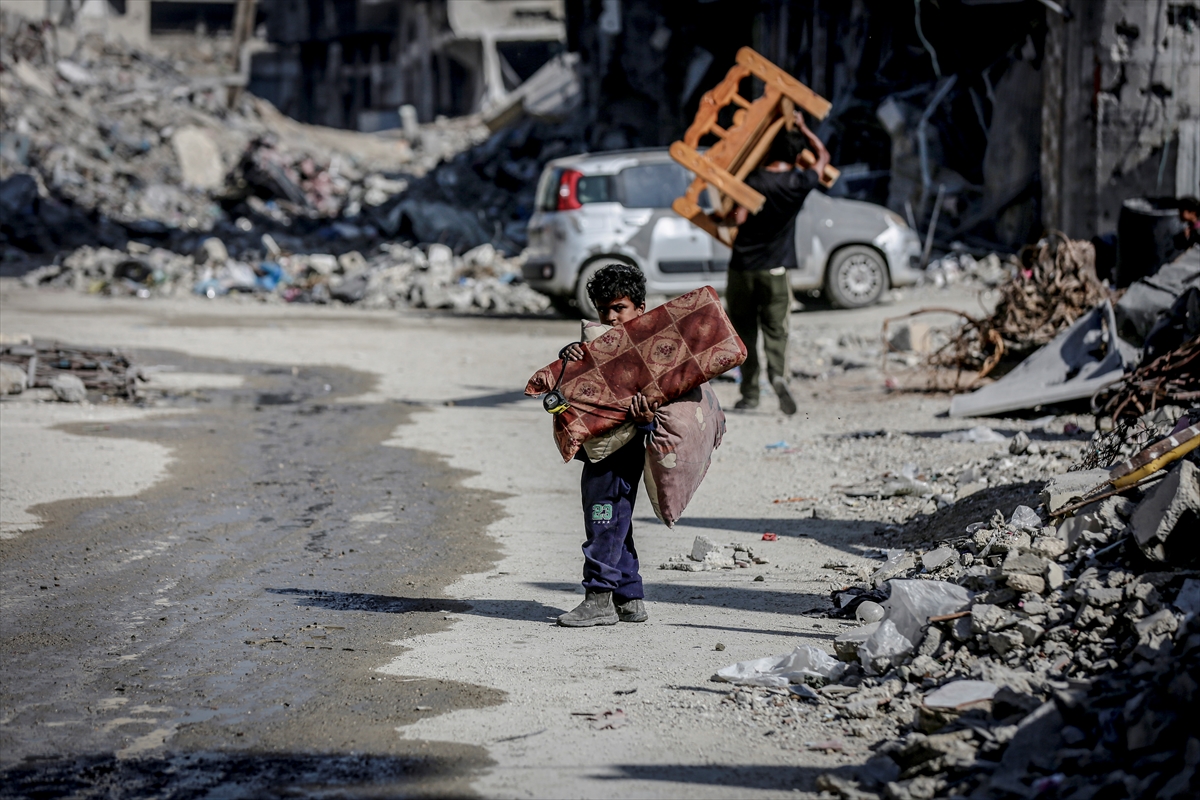
By Harun Nasrullah
Israel has been accused of returning “to wholesale massacres” after a new wave of deadly assaults across Gaza and Lebanon left dozens of Palestinians dead, in what Palestinian officials and rights groups say is yet another violation of the fragile ceasefire agreement in place since Oct. 10.
Activists described the day’s events in stark terms: “Back to wholesale massacres. Israel murdered 28 Palestinians in Gaza today, 17 of them women & children. Israel has never complied with ‘ceasefire’ agreements. It also bombed Ein el-Hilweh refugee camp in Lebanon killing 13 Palestinians mostly in their teens. It slaughters because it can, & it gets away with it.”
The Gaza Health Ministry later confirmed that at least 25 Palestinians were killed and 77 injured in multiple Israeli strikes on Wednesday, noting that several of the wounded remained in critical condition. Civil Defense spokesman Mahmoud Basal said the escalation began with artillery fire on a house in the Shujaiya neighbourhood of Gaza City, killing a young Palestinian. A second strike on a civilian gathering in the same neighbourhood killed another person and wounded dozens more.
Israeli warplanes also bombed the headquarters of Gaza’s Endowments Ministry in the Zeitoun district, killing five people, including a pregnant woman and a girl, Basal said. In Khan Younis, three Palestinians were killed when a strike hit a group of civilians.
According to media reports many of the strikes targeted areas from which Israeli troops had withdrawn under the Oct. 10 ceasefire deal. Palestinian authorities described the attacks as a clear breach of the agreement.
Hamas condemned the assault as a “horrific massacre” and “a dangerous escalation through which war criminal (Prime Minister Benjamin) Netanyahu seeks to resume the genocide against our people.” The group dismissed Israeli claims of gunfire toward its forces in Rafah as “a weak and exposed attempt to justify its crimes and violations.”
In Bani Suhaila, east of Khan Younis, medics said an airstrike on a home killed three people, including a baby girl, and wounded 15 others. Hamas warned that the attacks constituted “a dangerous escalation” and called on the United States, which brokered the ceasefire and issued security guarantees, to restrain Israel.
Beyond Gaza, Israeli aircraft bombed Lebanon’s Ein el-Hilweh refugee camp, killing 13 Palestinians, most of them teenagers, further fuelling regional anger.
The UN expressed alarm at the renewed violence. “We are deeply concerned about the Israeli airstrikes that we’ve seen in which civilians were reportedly killed and injured yesterday, including children,” UN spokesperson Stephane Dujarric said. “This is a stark reminder of how fragile the ceasefire is. What we need is for all to ensure that the ceasefire holds and continues to hold.” He stressed that “civilians must always be protected and spared from harm.”
Despite the ceasefire, Palestinian factions, human rights groups, and government bodies say Israel has carried out more than 400 violations since Oct. 10, killing over 300 people and injuring hundreds more. Gaza’s Health Ministry said Israel has killed 280 Palestinians and wounded 672 since Oct. 11 alone.
The violence comes amid catastrophic overall losses. Since October 2023, Israel’s war has killed nearly 70,000 Palestinians, mostly women and children, injured more than 170,000, and devastated most of the Gaza Strip.
On Thursday, the government media office reported that Israeli forces had expanded the so-called “yellow zone” in eastern Gaza City by pushing boundary markers about 300 metres deeper into the neighbourhoods of Ash-Shaaf, An-Nazzaz, and Baghdad Street. The shift trapped dozens of families as Israeli tanks advanced. Authorities said they “cannot determine the fate” of many civilians because shelling was still ongoing.
The “yellow line” is an informal, non-physical partition established under the ceasefire, separating Gaza City from Khan Younis. Its sudden expansion came just one day after Israeli airstrikes killed 25 Palestinians in Gaza City and Khan Younis.
As casualties rise across both Gaza and Lebanon, Palestinian officials and humanitarian agencies warn that the ceasefire is rapidly deteriorating, and that without decisive international intervention, the cycle of violence will intensify further.
[Photo: Palestinian families set out for areas they consider safer taking with them whatever belongings they could carry after the Israeli army expanded the so-called ‘Yellow Line’, where its forces are stationed, by placing new concrete blocks and carrying out attacks in the area in violation of the cease-fire in Gaza Strip on November 21, 2025. Photojournalist: Saeed M. M. T. Jaras/AA]